Nereus researchers investigate link between diet-shift timing and predator-prey linkages
What happens to big prey when you fish out all of their big predators? Nereus researchers dig deeper into size-specific diet shifts.
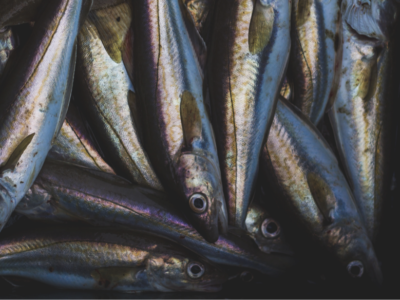
What happens to big prey when you fish out all of their big predators? Nereus researchers dig deeper into size-specific diet shifts.
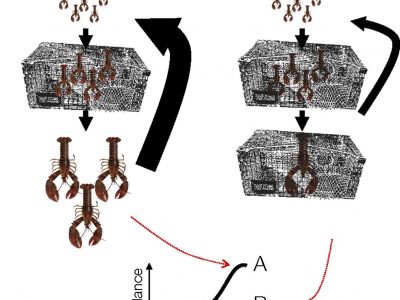
Nereus Program Principal Investigator Malin Pinsky (Rutgers University) has published a commentary in PNAS on research regarding climate vulnerability and resilience in the American lobster fishery.
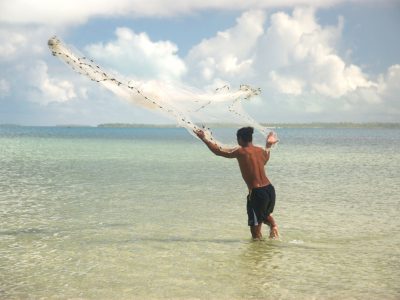
Robert Blasiak, Nereus Fellow at Stockholm Resilience centre, has published a new study on climate change vulnerability.
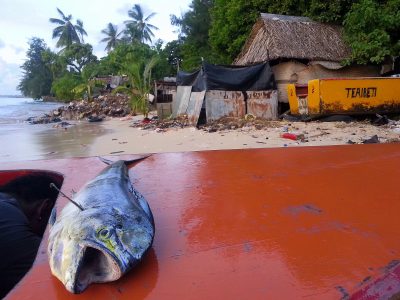
Many Pacific Island nations will lose 50 to 80 percent of marine species in their waters by the end of the 21st century if climate change continues unchecked, finds a new Nippon Foundation-Nereus Program study published in Marine Policy. This area of the ocean is projected to be the most severely impacted by aspects of climate change.
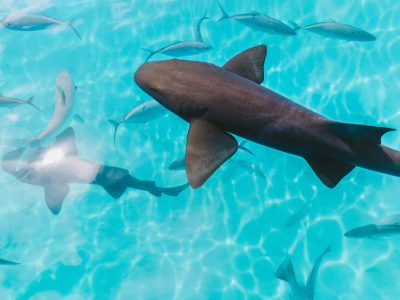
International wildlife law can be used as a tool to enhance conservation if a selective, informed approach is chosen to enhance cooperation among international wildlife lawyers and conservation professionals. Nereus Program Fellow Richard Caddell explores the limitations and opportunities of international wildlife law in a new paper published in BioScience.
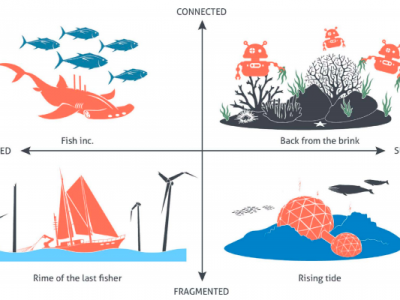
Developing scenarios — projections of the future — may help individuals, communities, corporations, and nations develop a capacity for dealing with the future. Scenarios are an important tool for proactively thinking about, and acting in a way that anticipates, things to come.
Marine Policy‘s special edition on ‘Funding for ocean conservation and sustainable fisheries’ aims to address funding for ocean conservation and sustainable fisheries from various angles. Interested parties should submit abstracts (~250 words) describing their intended research topic or question and how it relates to the special theme no later than November 30, 2017.
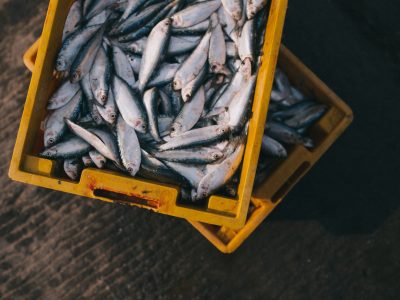
Asia is a powerhouse in both the production and consumption of seafood. Asia is home to 84% of the world’s fishers and fish farmers, and over 70% of the world’s fish and fishery products are consumed here. Yet demand within Asia for certified seafood lags behind rates in other regions, such as Europe and North America. This suggests an unevenly developed certification landscape, but one with vast potential if it can gain popularity in Asia.
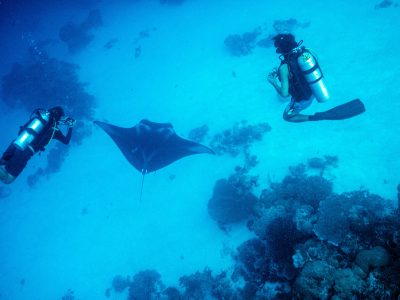
Reducing tourist consumption of reef fish is critical for Palau’s ocean sustainability, finds a new Nippon Foundation-UBC Nereus Program study published today in Marine Policy.
While climate change is expected to lead to sharp declines in Palau’s reefs, the best tourism management strategy includes a more than 70 per cent reduction in reef fish consumption by visitors. These findings are highly relevant for sustainable development in small island developing states under climate change.
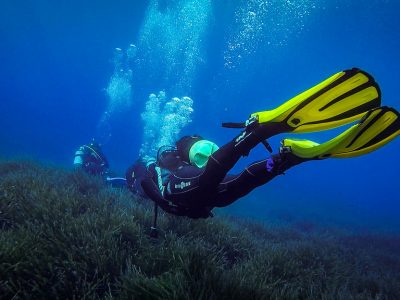
Climate change and human activity have pressing impacts on the state of our ocean, threatening the integrity of marine ecosystems themselves as well as the services they provide to human communities. Given the inevitable current and future effects of climate change, adaptation by both physical and human systems is crucial.